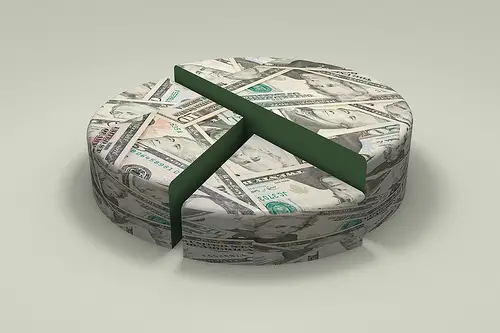 Saving money is one of the most important ways you can prepare for both the expected and unexpected troubles in life. Everything from a car breaking down to a job loss can be less painful with a little bit of cash saved up.
Saving money is one of the most important ways you can prepare for both the expected and unexpected troubles in life. Everything from a car breaking down to a job loss can be less painful with a little bit of cash saved up.
Most financial experts say you should aim to save about 20% of your income. While initially it might seem like a huge number, making a few changes to your budget can help you reach the 20% savings rate.
Food costs
Food costs and wasted food are some of the most significant ways that everyday consumers waste money. Planning meals before going to the store and carefully looking over your pantry can help you make use of what you already have and not purchase more than you need. Using low-cost ingredients such as potatoes and rice can beef up your meals without adding much cost, and help stretch expensive ingredients further.
Pay off debt
The average credit card interest rate is 20.7%, meaning that each month millions of dollars are being spent just to pay the interest on credit cards. Paying off your cards will allow you to pocket that interest money instead of sending it on to your credit card. Carefully budget to reduce your debt and stick to a budget to avoid adding more debt to your cards once you’ve paid them off.
Set a goal
One of the best ways to start saving is to set a firm goal, such as saving a certain amount each month. If you can automatically have that amount transferred to a savings account at the beginning of the month, you’ll be sure not to spend the money before you’ve had a chance to save it.
Unsubscribe
Check your credit card statements to see if there are any services you’ve signed up for that you don’t need any longer. Make sure you get a cancellation confirmation and check your statement next month to be sure you haven’t been billed. Even if your subscription is only five or ten dollars a month, those add up quickly to more savings in your pocket.
Refinance
Refinancing your auto loan, home loan, or even student loans can help put more money each month in your pocket. You may be able to substantially reduce your interest rate or spread monthly payments out over a longer time to help you keep more of your own money.
There are a lot of reasons to save money. Whether it’s for an emergency fund, a vacation, retirement, or a down payment on a new home, saving money should be an essential part of your personal financial plan. It’s hard to get started saving when you’re not used to it, but if you find a system that works for you and stick with it, soon it will become second nature. You might not be able to hit 20% as soon as you start, but start small and get in the habit of saving so that you can work your way up.
Photo Credit: stock photo

Question of the Week